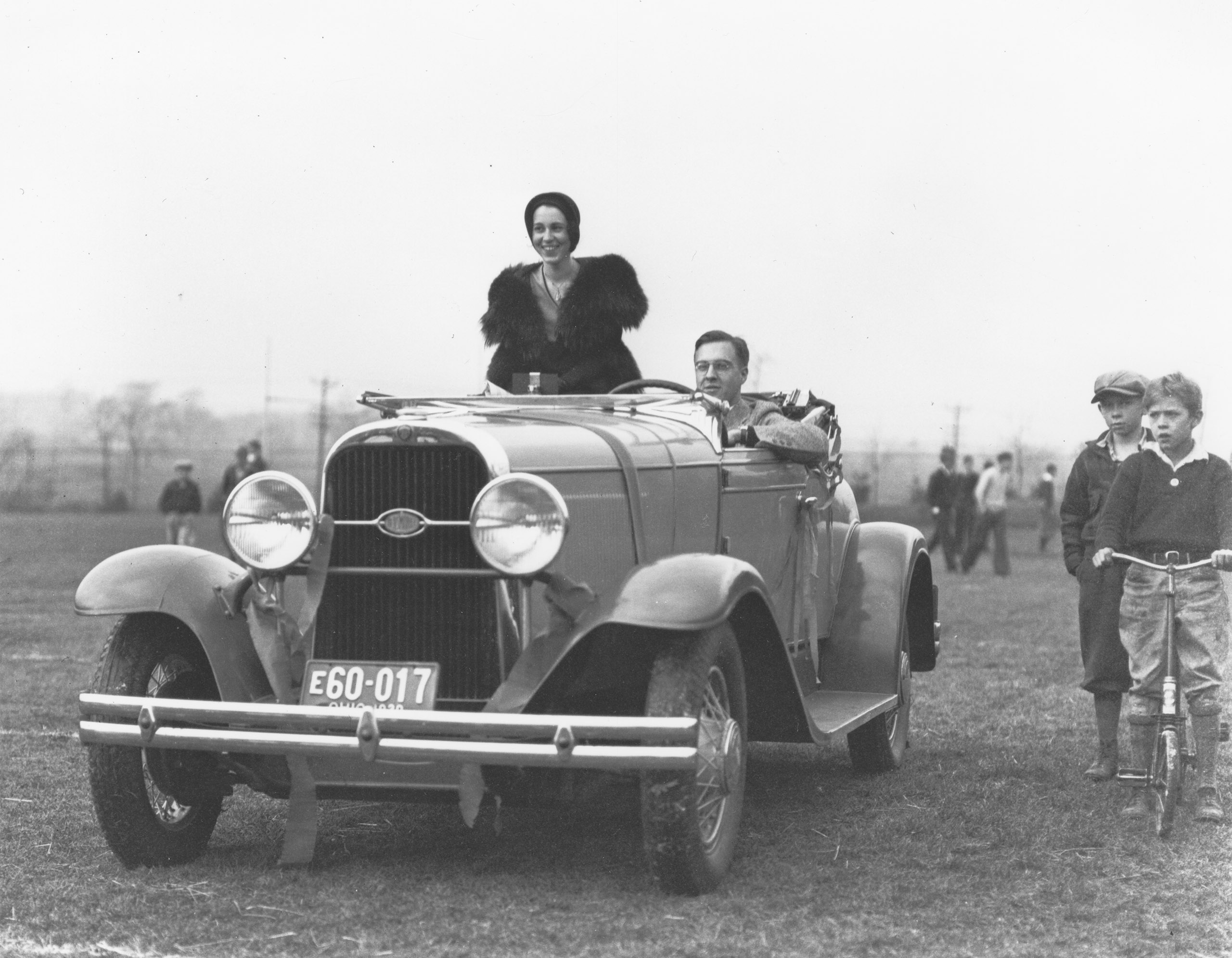President Beverly Warren gives visitors to the presidential residence a glimpse of Kent State University’s 105-year history through a dozen photos displayed chronologically on a wall in the reception area of her new home. The images, culled from the Kent State University’s digital photo archive, mark historical milestones, significant events and scenes of campus life. Here’s a selection so you can see the way we were.
by Phil Soencksen ’89
Photos courtesy of Special Collections and Archives

Winter, 1916: Clinton S. Van Deusen—first head of manual training, on Kent State’s faculty from 1913 to 1943 and namesake of Van Deusen Hall—parks in front of Kent Hall. Horse-drawn vehicles were commonly seen in Kent in the early decades of the 20th century, when paved roads were new (and few) and country roads were impassable by automobiles in bad weather.

Late 1940s: First-year students receive their “dinks.” The blue and gold felt skullcaps were part of a light-hearted tradition on the Kent Campus from the 1940s to 1969. If requested by an upper division man or woman, all “frosh” under the age of 21 were to “dink” by lifting the cap by its top button and dipping under it.

Fall, 1930: Kent State’s first Homecoming queen and king, Mary Donze and James Noble Holm, take the field. Holm returned to Kent State in 1939, and he was a professor of speech here until his retirement in 1973.

Spring, 1935: The Campus Day May Queen and her court pose in front of the Administration Building (now Cartwright Hall) and Kent Hall. “Campus Day” started in 1914 as “Extension Day” when President McGilvrey invited Kent State’s extension students to visit campus for a celebration of spring.

Circa 1950s-1960s: Ralph Dexter, professor of biology releases a chimney swift on the roof of one of the university’s buildings. Dexter, a world authority on the chimney swift, taught at Kent State for 45 years, from 1937 to 1982.
The swift, Chaetura pelagica, had colonized in the chimneys and airshafts of the university for many years. According to minutes from a meeting of the Board of Trustees, it was included in the new university seal in 1964 because it was such a distinctive part of campus and because it spends most of its life airborne—an apt symbol for leadership.

August 5, 1995: Dean Kahler, one of the students wounded at Kent State on May 4, 1970, was interviewed by ABC TV’s Day One, near the Pagoda outside Taylor Hall.
The Pagoda, an architecture student project completed shortly before the shootings, has become an iconic backdrop in photos because of the events associated with it.

June 18, 2012: The Kent State Golden Flashes baseball team, under coach Scott Stricklin, beat the number-one ranked Florida Gators at the College World Series in Omaha, Nebraska. Although the team was eliminated from the series a few days later, the season—which included winning 21 consecutive games—earned the Golden Flashes their fourth consecutive MAC tournament title and brought Kent State baseball to the College World Series for the very first time.

Mid 1940s: After World War II, the education benefits listed in the Servicemen’s Readjustment Act of 1944, known informally as the G.I. Bill, opened the doors of America’s colleges and universities to millions of men and women for whom a college education would have been impossible otherwise.
More than 10,000 WW II veterans studied at Kent State under the bill. This post-war enrollment boom resulted in a housing shortage at the university, and Kent residents helped by offering spare rooms to the returning veterans.